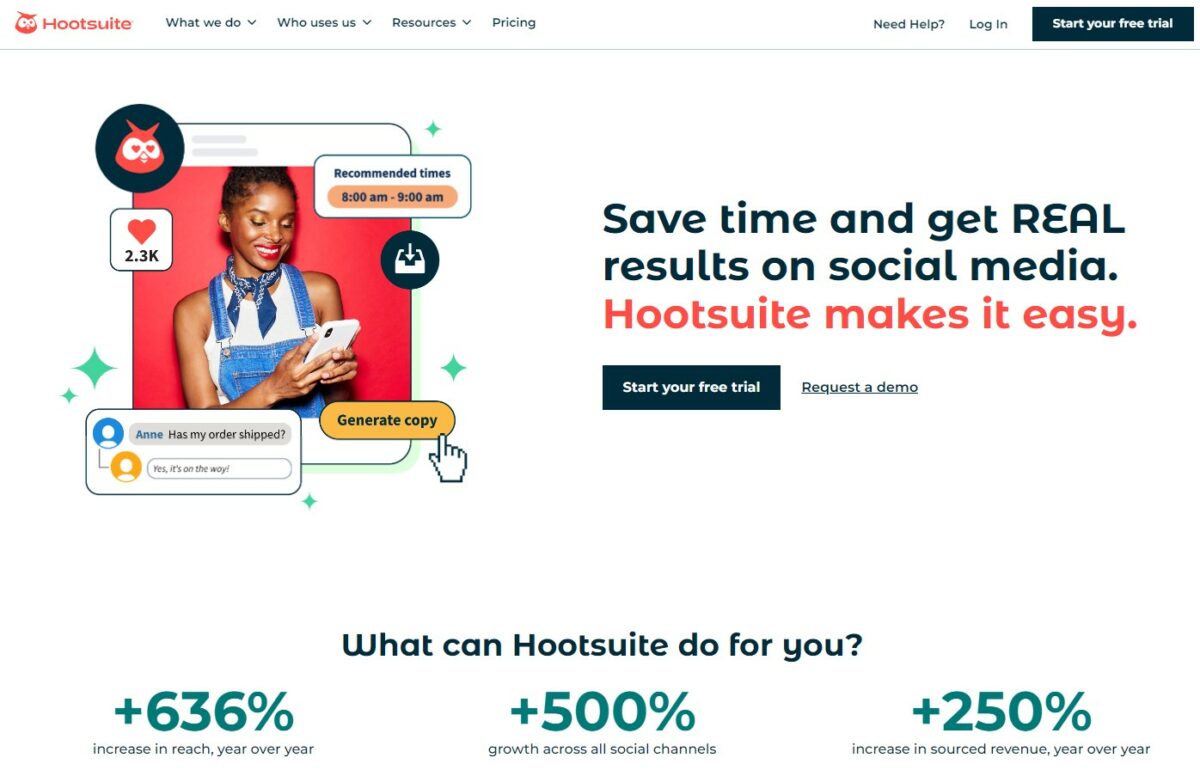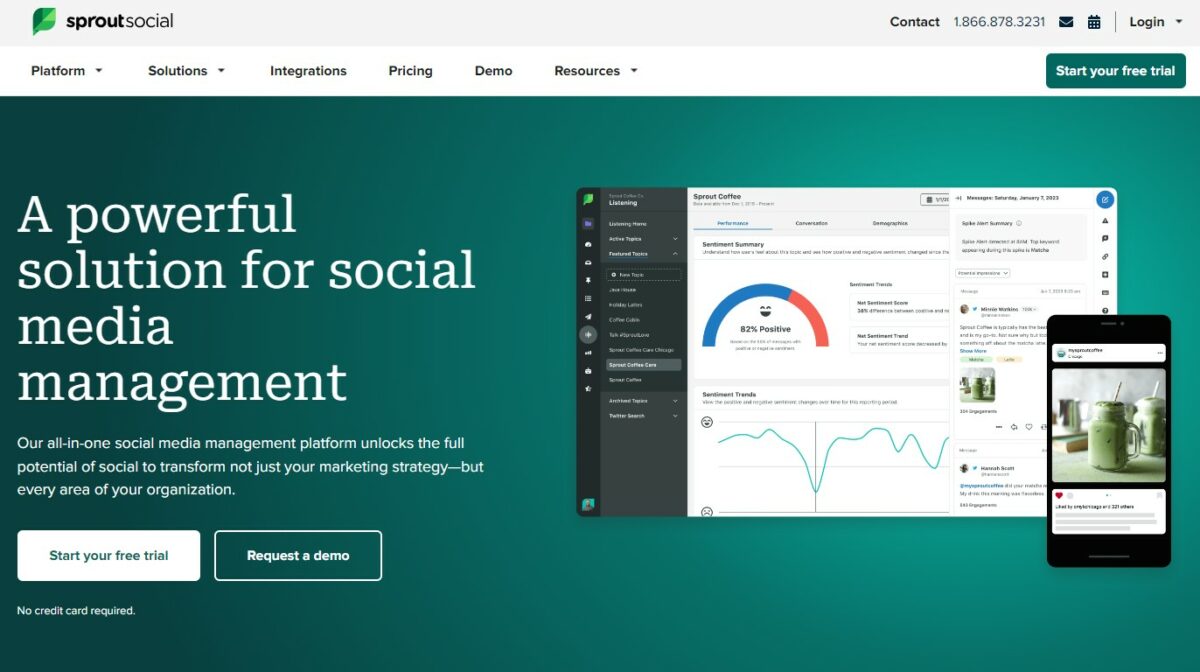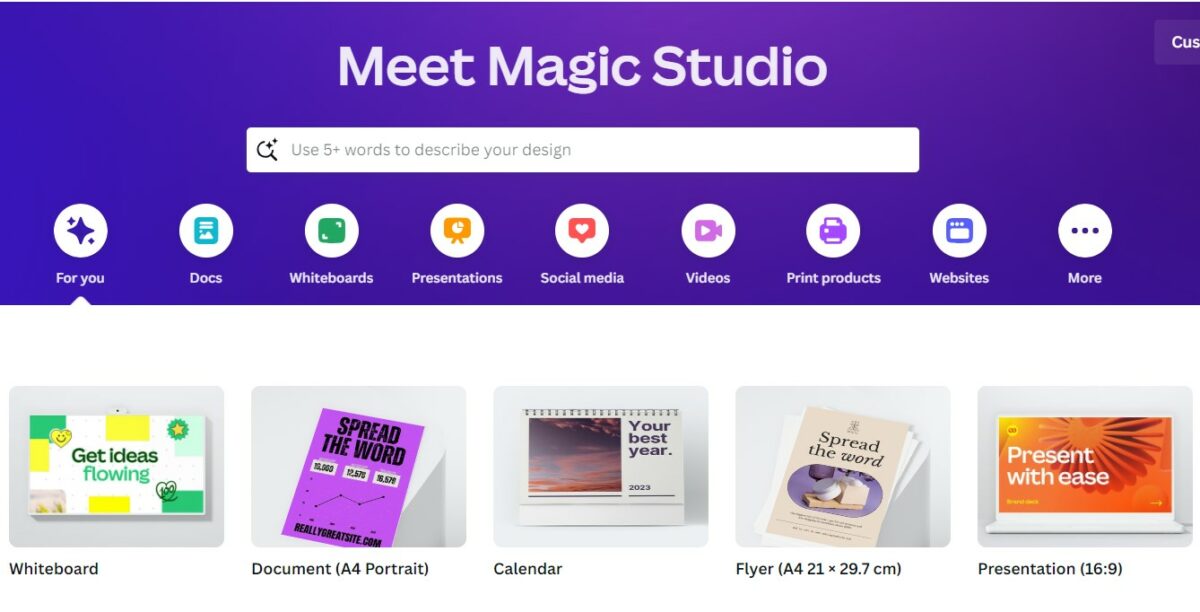Social media has revolutionized the business landscape, unveiling a plethora of fresh and exhilarating career opportunities.
Among the myriad roles that have emerged, the title of a “Social Media Manager” stands out prominently.
But what does this role truly encompass?
How does one transition into this dynamic field?
Dive deep into the world of how to become a social media manager, where creativity meets strategy, and discover the diverse skill set that sets the best apart from the rest.
Post Contents
How to Become a Social Media Manager in 7 Steps
With 28% of internet users discovering new products through social media ads, the significance of this role in shaping marketing campaigns is undeniable.
From producing captivating content to data analysis, the responsibilities are vast and varied, making it a role that’s both challenging and rewarding.
1. Understand the Role and Responsibilities

A Social Media Manager is not just about posting updates.
Their role is multifaceted, encompassing content creation, data analysis, community management, and more.
They are responsible for strategizing campaigns to increase followers, connect with audiences across platforms, and enhance a brand’s digital presence.
This requires a deep understanding of each platform’s nuances and the ability to tailor content accordingly.
As the digital face of a brand, they must also be adept at handling feedback, both positive and negative, and engaging with the audience in a manner that humanizes the brand.
2. Acquire Relevant Qualifications
While a degree in marketing or communications can be beneficial, it’s not the only pathway into this profession.
Many successful social media managers have backgrounds in diverse fields but have taken specialized courses in social media management.
These courses often cover essential topics like content creation, analytics, and platform-specific nuances.
Additionally, certifications from recognized institutions or platforms can provide an edge in the job market.
They not only validate your skills but also demonstrate a commitment to the profession.
3. Build a Strong Online Presence

Before managing a brand’s online presence, it’s crucial to have a robust personal online presence.
This serves as a testament to your understanding of the platforms and your ability to engage audiences.
Regularly updating your profiles, sharing insightful content, and engaging with industry leaders can showcase your expertise.
Moreover, a personal blog or website can act as a portfolio, displaying your proficiency in content creation and curation.
4. Gain Practical Experience
Theory and practice often diverge, especially in a field as dynamic as social media.
Internships, freelance projects, or even managing the social media pages of local businesses can provide invaluable experience.
These opportunities offer a hands-on understanding of the challenges faced and the strategies that work.
They also allow you to make mistakes and learn from them in a relatively low-stakes environment.
5. Stay Updated with Trends

Social media is ever-evolving.
Platforms introduce new features, algorithms change, and user preferences shift.
A successful Social Media Manager stays abreast of these changes.
Subscribing to industry newsletters, attending webinars, and participating in relevant forums can keep you informed.
It’s not just about knowing the changes but also about understanding their implications and adapting strategies accordingly.
6. Master Analytical Tools
Data drives decisions.
Understanding analytics is crucial to assess the effectiveness of campaigns, measure ROI, and gain insights into audience behavior.
Familiarity with tools like Google Analytics, Facebook Insights, and platform-specific metrics can provide a competitive edge.
These tools offer a treasure trove of data that, when interpreted correctly, can guide strategy and optimize results.
7. Develop Soft Skills

Technical prowess is essential, but soft skills play an equally critical role.
Communication is at the heart of social media management.
Whether it’s crafting compelling content or responding to feedback, effective communication is key.
Empathy allows you to resonate with your audience, while adaptability ensures you can pivot strategies when required.
Time management and multitasking are also vital, given the fast-paced nature of the job.
10 Best Tools for Social Media Managers
In the dynamic world of social media, having the right tools is crucial for success.
Whether it’s scheduling content, engaging with followers, or deriving insights from analytics, these tools empower social media managers to execute their strategies effectively.
1. Hootsuite

Hootsuite is a comprehensive social media management platform that allows users to schedule posts, interact with followers, and get the analytics they need to improve their social media strategy.
It supports multiple social networks, ensuring that managers can keep track of their brand’s presence across platforms.
The platform also offers team collaboration features, making it easier for larger teams to work together.
Its user-friendly dashboard and extensive integrations make it a favorite among professionals.
Hootsuite also offers courses and certifications for those looking to deepen their social media knowledge.
2. Buffer

Buffer is a user-friendly tool designed for scheduling, publishing, and analyzing social media posts.
Its intuitive interface makes it easy for beginners to get started, while its powerful features cater to the needs of advanced users.
Buffer supports a range of social networks and provides detailed analytics to help managers understand their audience better.
The platform also offers a browser extension, allowing users to share content effortlessly.
Its “Stories Planner” feature is particularly useful for planning and scheduling Instagram Stories.
3. Sprout Social

Sprout Social is a robust social media management tool that emphasizes engagement, publishing, and analytics.
It offers a unified inbox, ensuring that managers never miss a message or comment.
The platform provides in-depth reports that offer insights into audience demographics, engagement metrics, and more.
Sprout Social also facilitates team collaboration with features like task assignments and approval workflows.
Its listening features help brands monitor social conversations and stay ahead of trends.
4. Canva

Canva is a graphic design tool that simplifies the process of creating engaging visuals for social media.
With its drag-and-drop interface and vast library of templates, Canva makes design accessible to everyone.
Social media managers can use it to create everything from infographics to animated videos.
The platform also offers a “Magic Resize” feature, which automatically adjusts designs to fit various social media formats.
Canva’s Pro version offers additional features like a brand kit and premium stock images.
5. BuzzSumo

BuzzSumo is a powerful tool for content discovery and social listening.
It allows managers to find the most shared content across social media and identify industry influencers.
By understanding what content resonates with their audience, brands can tailor their strategies accordingly.
BuzzSumo also provides alerts, ensuring that managers stay updated on brand mentions, competitor activities, and relevant keywords.
Its backlink feature is valuable for tracking who is linking to your content.
6. SocialBee

SocialBee offers content scheduling, social listening, and audience analytics in one platform.
It categorizes content to ensure a balanced mix of promotional, engaging, and informative posts.
The platform’s “Content Recycling” feature ensures that evergreen content gets repeated exposure.
SocialBee also provides competitor analysis, helping brands understand their position in the market.
Its integrations with tools like Pocket and Quuu enhance its functionality.
7. Later

Later is a visual content planner and scheduler designed primarily for Instagram.
It offers a drag-and-drop interface, making it easy to plan and preview Instagram feeds.
The platform supports scheduling for other social networks as well, including Facebook, Twitter, and Pinterest.
Later’s “Linkin.bio” feature allows brands to drive traffic from Instagram to their website.
Its analytics provide insights into the best times to post and audience engagement.
8. Agorapulse

Agorapulse is an all-in-one social media management tool that emphasizes simplicity.
It offers a unified inbox, detailed reports, and a content publishing calendar.
The platform’s listening features help brands monitor mentions and track competitor activities.
Agorapulse also offers automated moderation, ensuring that spam and inappropriate comments are filtered out.
Its CRM features help brands understand their audience and build stronger relationships.
9. Trello

While not exclusively a social media tool, Trello is a versatile project management platform that many social media managers use to organize content calendars, plan campaigns, and collaborate with teams.
Its card-based system is intuitive and customizable.
Each card can contain checklists, attachments, due dates, and more.
Trello’s integrations with tools like Google Drive and Slack enhance its functionality.
Its flexibility makes it suitable for both individual managers and larger teams.
10. Brandwatch

Brandwatch is a digital consumer intelligence platform that offers social listening and analytics.
It allows brands to monitor mentions, track sentiment, and understand audience demographics.
The platform’s visualizations make it easy to interpret data and derive actionable insights.
Brandwatch also offers image recognition, helping brands identify where their logo appears in images across the web.
Its advanced segmentation features ensure that data is relevant and actionable.
Conclusion
Embarking on a journey to become a social media manager requires a blend of technical knowledge, practical experience, and interpersonal skills.
As the digital realm continues to expand, the role’s significance is poised to grow.
By following the steps outlined above and maintaining a passion for continuous learning, aspiring Social Media Managers can carve a niche for themselves in this dynamic field.






























